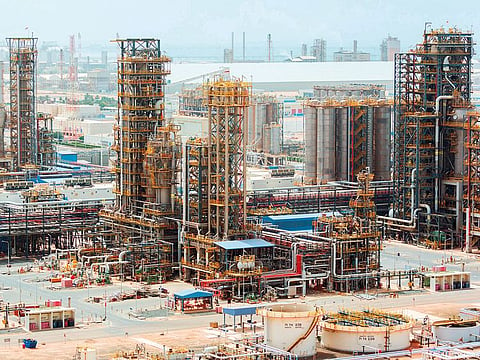UAE sets a new oil industry benchmark with Murban trading
Move signals country’s bold efforts to consolidate its position as a global energy major

Also In This Package
The historic launch of Murban trading on the new ICE Futures Abu Dhabi (IFAD) exchange not only signals the UAE’s bold efforts to consolidate its position as a global energy major for years to come, but is also the first time that an Opec member from the Arabian Gulf has allowed its crude to be freely sold and shipped anywhere in the world.
On Monday, the Abu Dhabi National Oil Company (Adnoc) and Intercontinental Exchange (ICE) celebrated the beginning of trading of the UAE’s flagship crude oil as the key futures contract on the IFAD commodities exchange, in a move that marks a major change in how Abu Dhabi prices its crude exports.
The ICE Murban Futures are physically-delivered contracts, with one futures contract equalling 1,000 barrels of Murban crude delivered from Adnoc’s storage terminal in Fujairah. The rise of Murban as a freely traded crude, similar to Europe’s Brent or US West Texas Intermediate (WTI), will not only allow the energy industry and its customers with a more favourable and transparent pricing mechanism, but also open up the UAE’s treasured oil to increased access around the world — making it more appealing to refiners in key markets.
Of course, IFAD is also supported by current customers and concession holders for Murban crude — such as BP, ENEOS, GS Caltex, PetroChina, Shell and TOTAL. Significantly, IFAD contracts will be cleared at ICE Clear Europe, along with other global oil benchmarks such as ICE Brent, ICE WTI and ICE (Platts) Dubai, thereby allowing its customers to benefit from associated margin offsets at the exchange.
Alongside the fact that the crude grade makes up more than half of the UAE’s total output, the IFAD trading paves the way for the emergence of Murban as a new benchmark for the oil industry, setting the bar for pricing oil in the Middle East and North Africa (Mena) region. Indeed, with Brent’s output declining, Murban could well surpass existing benchmarks in the future.
While the UAE has taken great strides in diversifying its economy over the years with a demonstrated goal of depending less on oil, the Murban trading on IFAD also reflects the country’s keenness to optimise its crude assets and create new opportunities within the hydrocarbon sector – which accounts for around 30 per cent of its GDP – alongside its long-term green investment strategies.
Discovered in 1958, Murban has been synonymous with the UAE’s rise as modern economic powerhouse – playing a pivotal role as the bedrock of the country’s sustained development. Now, it once again adds to that distinction by boosting the UAE’s competitiveness on the global energy map and paving the way for the next phase of the UAE’s journey of progress.









